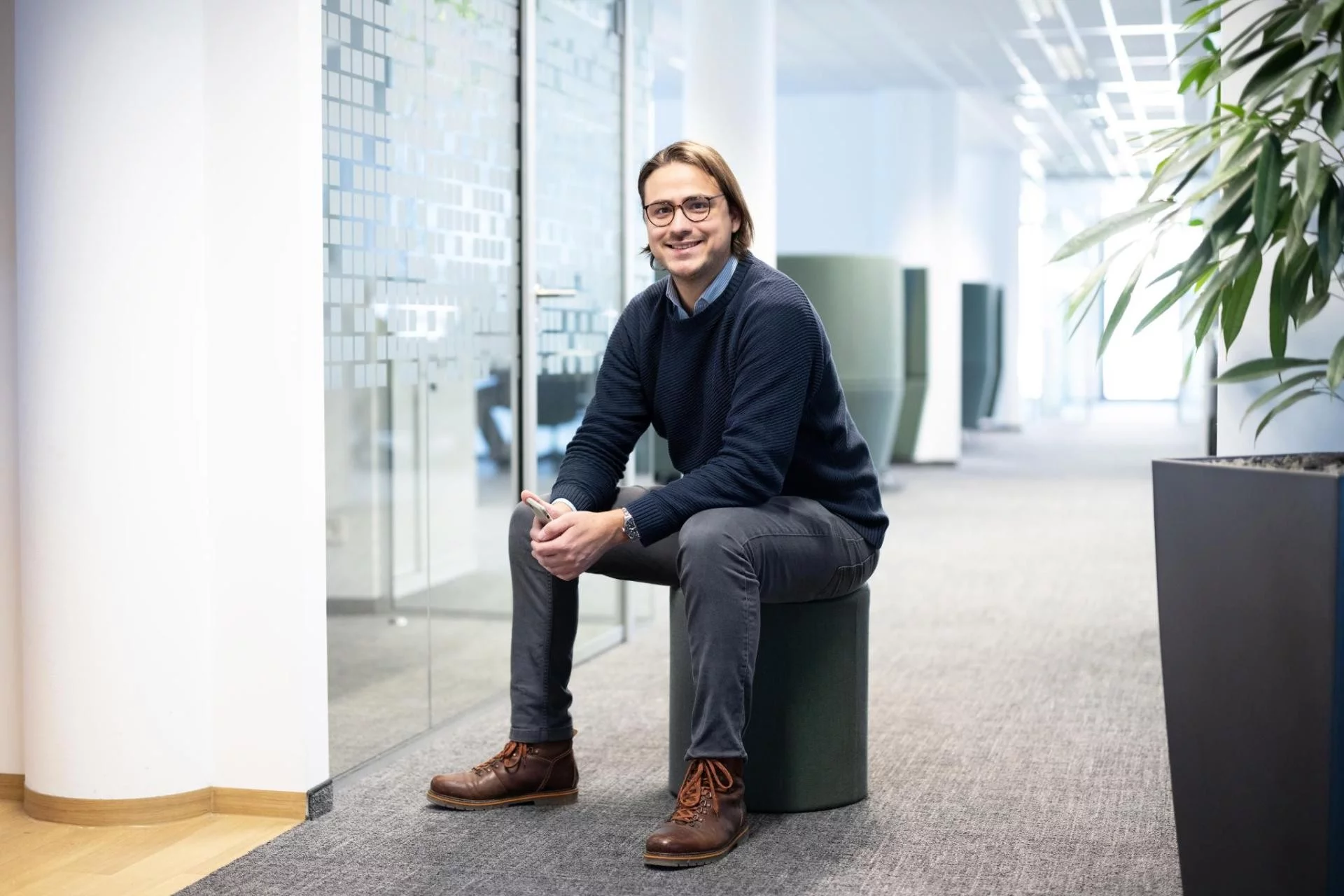The PSI Career Blog presents PSI alumni and their career paths, as well as the daily work and career perspectives at our partner companies. Today we get both combined: Christian Bährle worked in different places after his time at PSI, and provides an insight into his current position at ZEISS.
How did you find your role?
I became aware of the role through the traditional route of looking on an employment website.
Why did you decide to come to ZEISS?
Firstly, the technical aspect was a decisive factor. Simply put, what we accomplish here at ZEISS Semiconductor Manufacturing Technology (SMT) is unbelievably fascinating. On a daily basis, I am impressed by the precision required in all disciplines to make our products possible, from the design of the optics right through to the choice of the materials we use. The latter is where we chemists and other experts come in. After all, quite a bit can happen in the interaction of photons with materials.
The fact that ZEISS as a foundation-owned company takes its social responsibility very seriously, also influenced my decision. Personally, that is very important to me in an employer.
What is your typical work day at ZEISS like?
As a group leader, my work day mainly involves communication. I am in talks with project managers to find out which specialist expertise is required from my group; I also chat to my employees so that I can be informed of the latest developments from the projects. I think it is also important that I know how my team is doing, what they are working on and how I can support them. On top of this there are administrative tasks, which also mean interacting with many stakeholders.
What do you like most about your job?
The best part of my job is that I can support others in achieving success. My job is also very varied, and I have an overview of the different challenges that lie ahead for ZEISS. I can also play an active role in helping to shape the future.
How did you successfully transition into the new role? What was different, what was similar, what surprised you?
As ZEISS collaborates closely with external research institutes and universities, we are certainly a little closer to the academic sphere than other companies here.
Having said this, ZEISS was not my first employer in the manufacturing industry, so I had already made that switch. In my first role in this industry, I realized that the ultimate aim is more than developing a fantastic product. The development should offer an economic value and be received on the market accordingly.
Which of the skills that you acquired during your time at PSI help you in your new role?
At ZEISS we also work in diverse, interdisciplinary teams – as we did at PSI too. Our colleagues come from various specialist fields: engineering, physics, chemistry, mathematics, information technology and more. Being able to communicate beyond specialist areas and convey your perspective to other people, including those from outside your department, is necessary in order to solve the challenges we face together.
What have you learned since moving from PSI to ZEISS?
How important it is to have a good team around you. The scientific and technical challenges of tomorrow cannot be solved by only one individual or a handful of people.
Is there anything you miss, now that you are no longer at PSI?
The overall “research at PSI” experience with long field campaigns, writing publications, fun conferences and the good food in the OASE restaurant. I will always remember this fondly.
What advice would you like to give to younger early career researchers at PSI?
Have the courage to frequently reexamine things from a fresh perspective or stance in order to expand your horizons.
